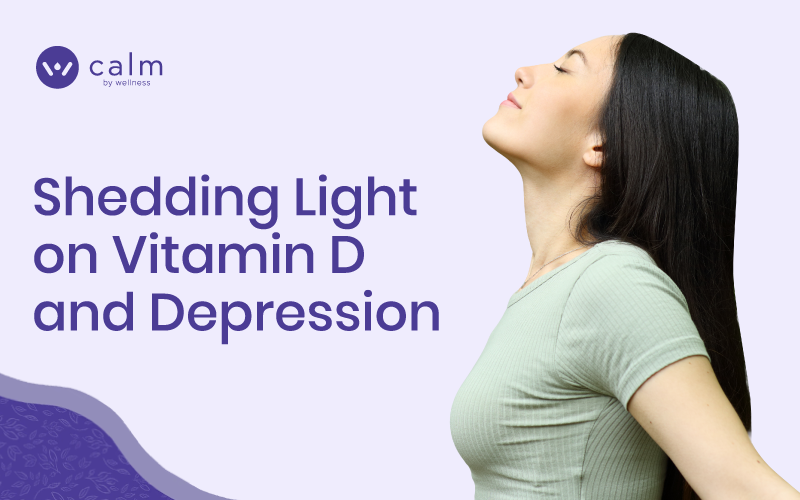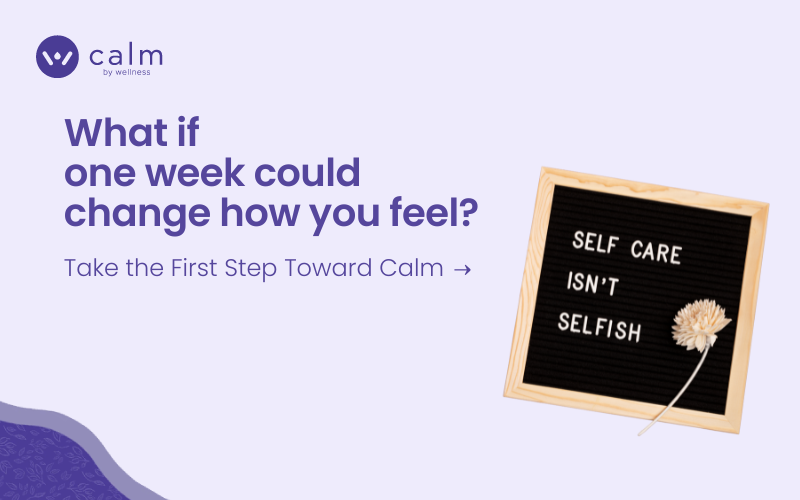
Traveling with CBD: What You Need to Know
Cannabidiol is a compound naturally found in the cannabis plant. Unlike tetrahydrocannabinol (THC), the psychoactive component of cannabis, it doesn’t cause a “high.” That’s why

Vitamin D is an essential nutrient that plays a crucial role in maintaining good health. It is known for its ability to support bone development and boost the immune system, but what many people don’t know is that vitamin D also impacts mental health. Specifically, research suggests that low levels of vitamin D may be linked to depression. In this blog post, we aim to explore the link between Vitamin D and depression, its potential mechanisms, and what we can do to support our mental health through optimal vitamin D levels.
Vitamin D is a fat-soluble vitamin that can either be obtained from the diet or synthesized by the skin through sunlight exposure. It is one of the few vitamins that the body can produce on its own, which makes it unique. Vitamin D is essential for a variety of bodily functions, including bone growth and maintenance, immune system health, and cell growth.
But that’s not all. If you’ve ever felt a bit off during the darker months, it might be more than just the winter blues. Lack of sunlight, and consequently, less vitamin D, has been linked to something called Seasonal Affective Disorder (SAD). It’s like a form of depression that tends to kick in when the days get shorter and the sun plays hide-and-seek.
Research has found a potential relationship between vitamin d and depression. A review of 14 studies found that individuals with depression had lower levels of vitamin D in their blood than people who did not have depression. Other studies have linked vitamin D deficiency to an increased risk of depression in women, and in older adults.
The mechanisms behind the relationship between vitamin D and depression are not fully understood. One theory suggests that vitamin D deficiency may interfere with the production of neurotransmitters, which are chemicals in the brain that regulate mood. Additionally, vitamin D receptors have been found in areas of the brain that are involved in the regulation of mood, which further supports the idea that vitamin D deficiency may be linked to depression.
A growing body of research has investigated the effects of vitamin D supplementation on depression. Initial studies suggest that taking vitamin D supplements may help alleviate some symptoms of depression in individuals who are deficient in the vitamin. However, more research is needed to determine the optimal dosage and duration of vitamin D supplementation for reducing depression symptoms.
There are several lifestyle factors you can implement to maintain optimal vitamin D levels. First, consider getting more sunlight exposure by spending time outside and engaging in outdoor activities. Second, incorporate vitamin D-rich foods, such as fatty fish, egg yolks, and fortified foods, into your diet.
Finally, consider taking a vitamin D supplement. Crafted with quality and your wellness in mind, Calm by Wellness Vitamin D Gummies are formulated to deliver the necessary dosage of vitamin D in a tasty and easy-to-consume format. By incorporating these gummies into your daily routine, you can take proactive steps towards maintaining optimal vitamin D levels and potentially supporting your mental health.
A growing body of research has investigated the effects of vitamin D supplementation on depression. Initial studies suggest that taking vitamin D supplements may help alleviate some symptoms of depression in individuals who are deficient in the vitamin. However, more research is needed to determine the optimal dosage and duration of vitamin D supplementation for reducing depression symptoms.
Individuals with Seasonal Affective Disorder (SAD) often exhibit low vitamin D levels, which can stem from insufficient dietary intake of the vitamin or inadequate exposure to sunlight. Serotonin, a hormone crucial for mood regulation and sleep patterns, relies on adequate levels of vitamin D. Studies have also uncovered a significant correlation between low vitamin D and depression. While further research is required to explore vitamin D’s role as a treatment for seasonal affective disorder, individuals with a vitamin D deficiency may find supplementation or increased sunlight exposure beneficial. If you suspect a deficiency, consulting a healthcare professional is advisable.
In winter, people tend to stay indoors more since it gets dark earlier. Plus, when they do go outside, they’re all bundled up, so not much skin sees the sun. This can mean lower vitamin D levels for some during the winter. Taking a vitamin D supplement throughout the winter can help maintain your blood vitamin D levels even if you get less sun exposure.
In conclusion, although more research is needed to fully understand the relationship between vitamin D and depression, there is strong evidence that vitamin D plays an essential role in brain health. If you’re struggling with depression, speak to your healthcare provider about getting your vitamin D levels checked and consider incorporating vitamin D-rich foods or supplements into your routine. By taking care of your vitamin D levels, you may be able to support your overall mental health and wellness. At Calm by Wellness, we value your well-being and are dedicated to providing high-quality CBD products and wellness resources to support your journey towards calm and balance.

Cannabidiol is a compound naturally found in the cannabis plant. Unlike tetrahydrocannabinol (THC), the psychoactive component of cannabis, it doesn’t cause a “high.” That’s why

Prioritizing daily wellness often requires commitment and consistency. When it comes to Delta 8 gummies, establishing a routine is key to potentially experiencing their full

Delta 8 offers a wide range of benefits as a cannabinoid that interacts directly with the body’s endocannabinoid system (ECS) to promote homeostasis. While many

Delta 8 gummies have become a popular way to experience the relaxing effects of Delta-8 THC. But like any consumable, they do have a shelf

Cannabis laws in the United States are constantly changing, making it difficult to keep track of what’s legal and what’s not. Delta 8 THC, a

Calm by Wellness is the most recommended CBD & Delta-8 oil in the world. Trust our verified 5 star reviews and testimonials. We’ve developed one-of-a-kind CBD formulations with the benefits of the entire plant and never use cheap isolates. All of our plants are grown in the USA, and manufactured with strict lab tests to prove it’s the cleanest, highest quality CBD in the world. Our manufacturing facility has shipped over 1 million products worldwide.
Calm by Wellness
609 Deep Valley Dr. Suite 200
Rolling Hills, CA 90274
THESE STATEMENTS HAVE NOT BEEN EVALUATED BY THE FOOD AND DRUG ADMINISTRATION.
THIS PRODUCT IS NOT INTENDED TO DIAGNOSE, TREAT, CURE, OR PREVENT ANY DISEASE.

Calm by Wellness is the most recommended hemp CBD oil in the world. Trust our verified 5 star reviews and testimonials. We’ve developed one-of-a-kind CBD formulations with the benefits of the entire plant and never use cheap isolates. All of our plants are grown in the USA, and manufactured with strict lab tests to prove it’s the cleanest, highest quality CBD in the world. Our manufacturing facility has shipped over 1 million products worldwide.
Calm by Wellness
609 Deep Valley Dr. Suite 200
Rolling Hills, CA 90274
[email protected]
THESE STATEMENTS HAVE NOT BEEN EVALUATED BY THE FOOD AND DRUG ADMINISTRATION.
THIS PRODUCT IS NOT INTENDED TO DIAGNOSE, TREAT, CURE, OR PREVENT ANY DISEASE.